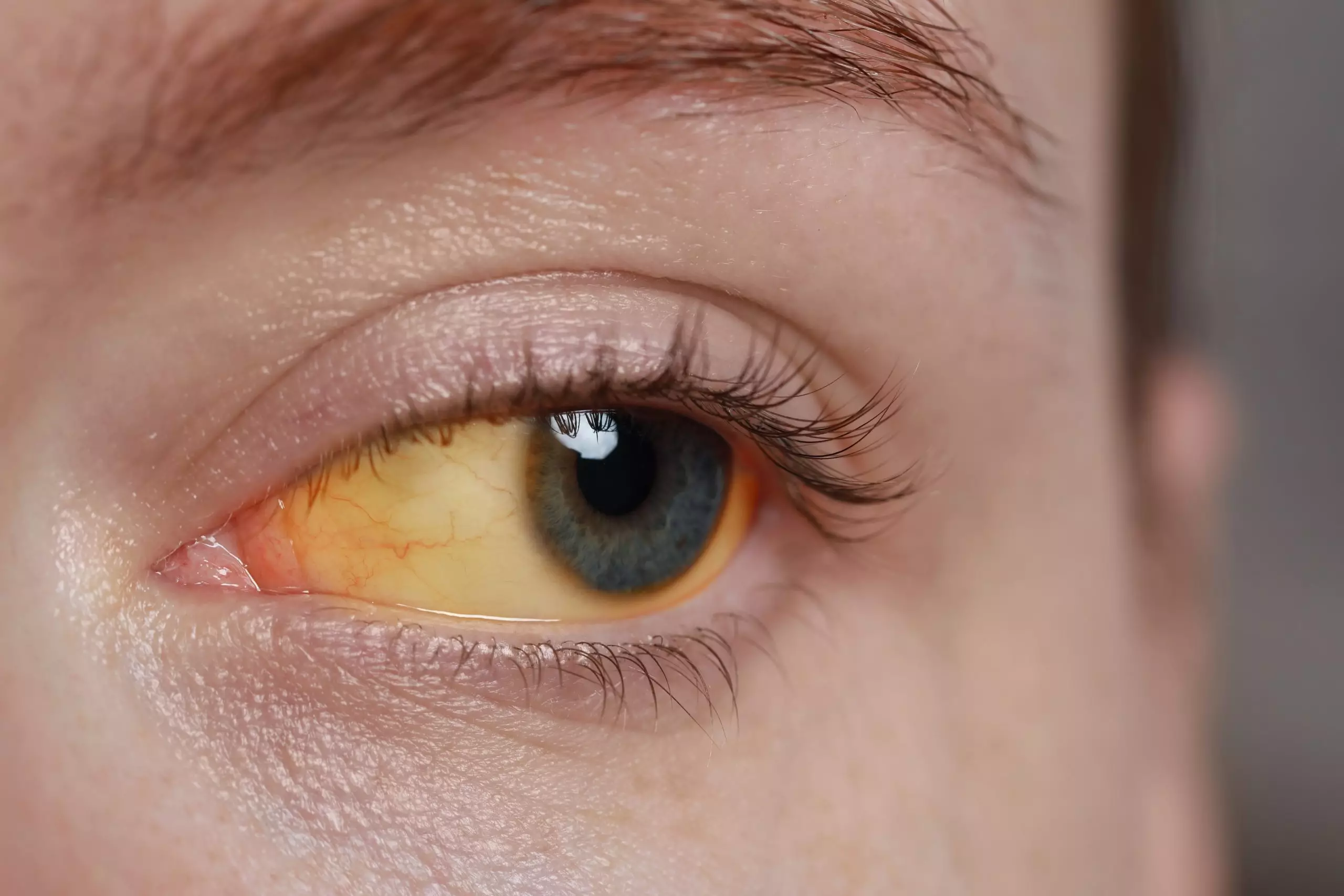Welcome to the Aldeyra Therapeutics Alcohol-Induced Hepatitis Study!
The goal of this study is to see if the investigational drug ADX-629 is safe and effective at improving symptoms in adults with alcohol-induced hepatitis by reducing inflammation.
Participants who would like to join the trial will undergo screening to make sure they are a good fit. If they meet the requirements, they will be enrolled and enter the study treatment period. All eligible participants will receive ADX-629 for 28 days. There will not be a placebo group.

You may be eligible for this clinical trial if:
You are 21 years old or older
You have been diagnosed with alcohol-induced hepatitis, or you are a heavy drinker
You are willing to attend up to 6 study visits in an 8-week period
Other criteria may apply

Eligible study participants will:
- Be connected with their nearest research clinic
- Receive study information and learn more about alcoholic hepatitis
- Undergo health assessments and study procedures at no cost to them
- Meet with a research team 6 times over the course of 2 months (support for traveling to site location will be provided, if needed)
About alcohol-induced hepatitis
Everything you consume is processed by the liver, which is responsible for filtering out toxins. Alcohol is a toxin and breaks down into harmful chemicals. Therefore, heavy drinking (defined as 3+ drinks/day for at least 6 consecutive months) can cause harmful chemicals to build up, overwhelming and inflaming the liver and causing it to swell. Chronic inflammation can cause cell damage, liver failure, and even death.
Alcohol-induced hepatitis often starts quietly and without symptoms, so many people may not know they have it. Symptoms can include yellowing of the skin and eyes (jaundice), abdominal pain, muscle weakness, weight loss, and nausea and vomiting, among others.
Alcohol-induced hepatitis most often happens in people who drink heavily over many years. If you have a history of heavy alcohol use, contact a healthcare professional for help.

Did you know?
All prescription drugs that are taken today were once studied in clinical trials. Scientists cannot study ground-breaking therapies without the help of volunteers. New medications cannot be prescribed unless they are found to be safe and effective in clinical trials.

A large number of experimental drugs never get a chance to be researched because scientists are unable to find enough volunteers for the clinical trial.

Any qualified, experienced medical doctor can become a trial doctor, even your family physician or primary care doctor.

Trial sites can be any hospital, medical clinic, or doctor’s office where trial-related assessments take place.

You do not have to pay or have health insurance to sign up for a clinical trial. Volunteers often recieve compensation for participating in a clinical trial.
Frequently Asked Questions
What is a research study?
Medical research studies (or clinical trials) help doctors and scientists learn about experimental drugs, including how well they work and how safe they are. Clinical trials may study the experimental drug (or study drug) by itself, or compare it to an approved medication or placebo (inactive substance).
What should I expect if I join a clinical trial?
Every clinical trial is different, so it is important to always read all the information that is provided by the trial doctor and research staff. Prospective participants will always be informed of the procedures that they can expect to undergo before they decide to join the clinical trial. Participation in a clinical trial is usually broken down into three separate stages: screening, study treatment, and follow-up.
- Screening: The purpose of the screening period is to make sure participants are suitable to take part in the trial.
- Treatment: If a participant is deemed eligible, they will officially be enrolled in the clinical trial and may receive the study drug. More information will be provided in your consent form.
- Follow-up: Participants will complete one last visit after they are done receiving the study drug.
What assessments will be performed during this trial?
There are common assessments that are performed during most clinical studies. Here is what you can expect during the ADX-629 study:
1. Read and sign the Informed Consent Form (ICF)
- The ICF explains the study in more detail. The study doctor will explain the information in the ICF and answer any questions.
- You must sign the ICF before receiving any study treatment or assessments.
- Remember that taking part in the study is your choice. You can stop at any time.
2. Confirm that you can join the study
- Prospective participants who want to join the study will undergo screening to ensure they are a good fit. Study assessments/procedures may include:
- Demographics: You will be asked to provide personal information, including date of birth, gender, ethnic origins, and race.
- Medical History: You will be asked about your past and present health conditions, including alcoholic hepatitis. You must provide accurate and complete information about your medical history and current health conditions.
- Physical Exam: You will undergo routine medical assessments, such as physical examinations and blood draws.
3. Receive Treatment
If prospective participants meet the study requirements, they will be enrolled and receive the experimental treatment. All study participants will receive a dose of ADX-629. There will be no placebo group in this part of the study.
The trial drug, trial-related procedures/assessments, and visits will be provided at no cost. Support for traveling to site location will be provided, if needed.
4. Visit the study clinic
Eligible participants will be asked to complete approximately 6 study visits during a 2-month period.
Where are the study sites located?
This study is conducted on the following sites:
Florida
- Tampa: Florida Health Sciences Center/Tampa General Hospital/USF | 409 Bayshore Blvd Tampa, FL 33606
- Bradenton: Synergy Healthcare | 300 Riverside Drive East, Suite 4500, Bradenton, FL 34208
Kentucky
- Louisville: UofL Health Brown Cancer Center | 501 East Broadway, Suite 210, Louisville, KY 40202
Maryland
- Bethesda: Walter Reed National Military Medical Center | 8900 Wisconsin Ave GI Dept., Bldg. 9, Floor 1, Bethesda, MD 20889
Texas
- Dallas: The Liver Institute at Methodist Dallas Medical Center | 1411 N Beckley Ave., Pavilion III, Suite 168, Dallas, TX 75203
- San Antonio: Methodist Specialty and Transplant Hospital | 8038 Wurzbach Rd, Suite 360, San Antonio, TX 78229
How long will this trial last?
Your participation in this study is expected to last about 2 months. The trial doctor will always tell you how long the trial is before you decide to join.
Do I have to pay to join a clinical trial?
You do not have to pay or have health insurance to sign up for a clinical trial. The trial drug and trial-related procedures are provided to participants at no charge.

